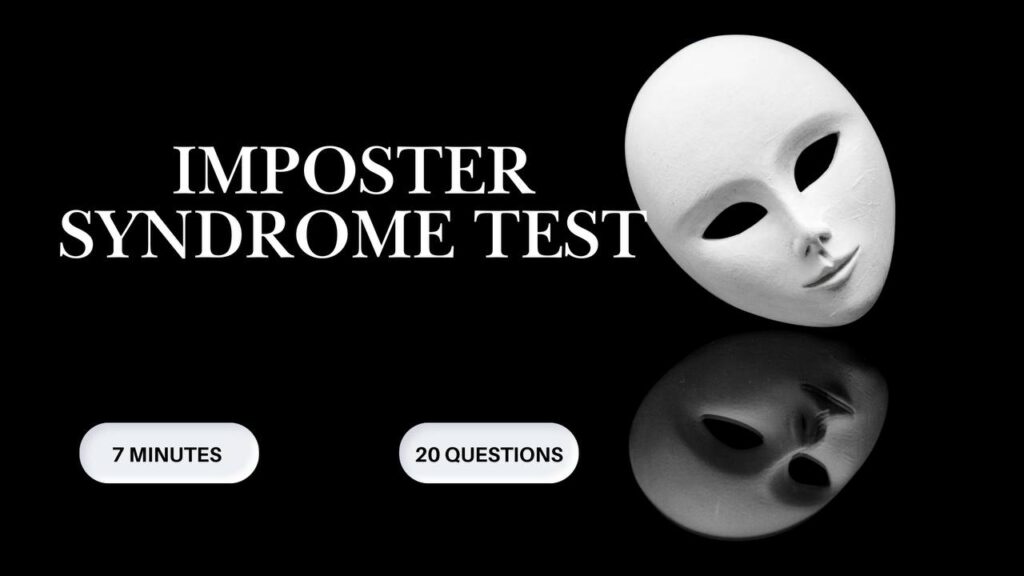
Results
High Levels of Imposter Feelings
- What This Means: Your responses strongly suggest that you experience significant imposter syndrome tendencies, often doubting your abilities and feeling undeserving of success.
- Insights:
- Persistent fear of being exposed as a “fraud.”
- Difficulty internalizing achievements and attributing success to luck.
- High self-criticism despite evidence of competence.
- Next Steps:
- Seek support from mentors or a counselor to challenge these beliefs.
- Practice self-compassion and acknowledge your accomplishments.
- Explore techniques to reframe negative thoughts about your abilities.
Moderate Imposter Feelings
- What This Means: Your responses indicate that you experience some imposter syndrome tendencies, though they may not be pervasive.
- Insights:
- Occasional self-doubt despite evidence of success.
- Hesitation to accept praise or recognition.
- Potential fear of failure or not meeting expectations.
- Next Steps:
- Reflect on the root causes of your self-doubt.
- Build confidence by celebrating small wins and seeking constructive feedback.
- Consider discussing your feelings with trusted colleagues or friends
Mixed Feelings About Competence
- What This Means: Your responses suggest some uncertainty about imposter syndrome tendencies, with occasional self-doubt balanced by periods of confidence.
- Insights:
- Situational self-doubt that may not be a persistent issue.
- Openness to feedback but occasional discomfort with praise.
- Mixed feelings about your abilities depending on the context.
- Next Steps:
- Monitor situations where self-doubt arises to identify patterns.
- Practice mindfulness and grounding techniques to build self-assurance.
- Seek feedback from supportive peers to reinforce your strengths.
Low Levels of Imposter Feelings
- What This Means: Your responses indicate minimal experiences of imposter syndrome, suggesting confidence in your abilities and achievements.
- Insights:
- You likely accept your accomplishments as well-earned.
- Healthy sense of self-worth and competence.
- Confidence in your ability to meet challenges and expectations.
- Next Steps:
- Maintain this positive outlook by continuing to acknowledge your hard work.
- Use your confidence to mentor others who may experience self-doubt.
- Stay mindful of new situations that might challenge your confidence.
No Indication of Imposter Syndrome
- What This Means: Your responses strongly indicate a lack of imposter syndrome tendencies. You have a solid sense of self-confidence and value your abilities.
- Insights:
- Strong belief in your competence and achievements.
- Comfort with recognition and praise from others.
- Stable self-esteem and resilience in professional or personal settings.
- Next Steps:
- Continue leveraging your confidence to take on new challenges.
- Share your strategies for self-assurance with those who may struggle.
#1. I appear accomplished, though that’s not how I see myself.
#2. I am filled with self-doubt about my abilities.
#3. Other people are much more capable and talented than I am.
#4. I deserve my success.
#5. I feel I am faking it at my job.
#6. I have a chronic feeling of inadequacy.
#7. I rarely talk about my accomplishments.
#8. I am uncomfortable receiving compliments about my work.
#9. I minimize my accomplishments.
#10. I rarely compare myself with others.
#11. My achievements are the result of chance.
#12. I am just playing the part of a successful person.
#13. I haven’t earned the good feedback I get.
#14. I rarely feel confident in my abilities.
#15. I feel like I don’t measure up.
#16. I feel like I am winging it all the time.
#17. I attribute my accomplishments to luck.
#18. I feel like a fraud.
#19. I am uneasy with receiving praise.
#20. I am unafraid of failure, I take on new challenges gladly.
Previous
Finish


